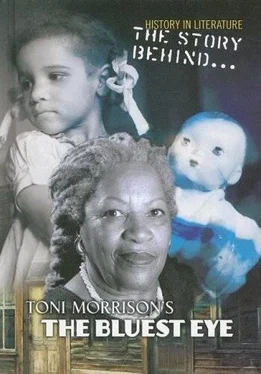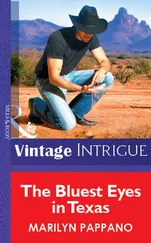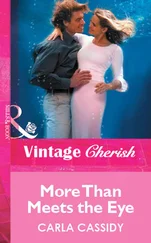She didn't never give me the eleven dollars she owed me, neither.
That hurt bad. The gas man had cut the gas off, and I couldn't cook none. I really begged that woman for my money. I went to see her. She was mad as a wet hen. Kept on telling me I owed her for uniforms and some old broken-down bed she give me. I didn't know if I owed her or not, but I needed my money. She wouldn't let up none, neither, even when I give her my word that Cholly wouldn't come back there no more. Then I got so desperate I asked her if she would loan it to me. She was quiet for a spell, and then she told me I shouldn't let a man take advantage over me.
That I should have more respect, and it was my husband's duty to pay the bills, and if he couldn't, I should leave and get alimony. All such simple stuff. What was he gone give me alimony on? I seen she didn't understand that all I needed from her was my eleven dollars to pay the gas man so I could cook. She couldn't get that one thing through her thick head. 'Are you going to leave him, Pauline.' she kept on saying. I thought she'd give me my money if I said I would, so I said' Yes, ma'am.'
'All right,' she said. 'You leave him, and then come back to work, and we'll let bygones be bygones.'
'Can I have my money today?' I said. 'No' she said. 'Only when you leave him. I'm only thinking of you and your future. What good is he, Pauline, what good is he to you?' How you going to answer a woman like that, who don't know what good a man is, and say out of one side of her mouth she's thinking of your future but won't give you your own money so you can buy you something besides baloney to eat? So I said, 'No good, ma'am. He ain't no good to me. But just the same, I think I'd best stay on.' She got up, and I left. When I got outside, I felt pains in my crotch, I had held my legs together so tight trying to make that woman understand. But I reckon now she couldn't understand. She married a man with a slash in his face instead of a mouth. So how could she understand?"
One winter Pauline discovered she was pregnant. When she told Cholly, he surprised her by being pleased. He began to drink less and come home more often. They eased back into a relationship more like the early days of their marriage, when he asked if she were tired or wanted him to bring her something from the store.
In this state of ease, Pauline stopped doing day work and returned to her own housekeeping. But the loneliness in those two rooms had not gone away. When the winter sun hit the peeling green paint of the kitchen chairs, when the smoked hocks were boiling in the pot, when all she could hear was the truck delivering furniture downstairs, she thought about back home, about how she had been all alone most of the time then too, but that this lonesomeness was different. Then she stopped staring at the green chairs, at the delivery truck; she went to the movies instead. There in the dark her memory was refreshed, and she succumbed to her earlier dreams. Along with the idea of romantic love, she was introduced to another-physical beauty. Probably the most destructive ideas in the history of human thought. Both originated in envy, thrived in insecurity, and ended in disillusion. In equating physical beauty with virtue, she stripped her mind, bound it, and collected self contempt by the heap. She forgot lust and simple caring for. She regarded love as possessive mating, and romance as the goal of the spirit. It would be for her a well-spring from which she would draw the most destructive emotions, deceiving the lover and seeking to imprison the beloved, curtailing freedom in every way.
She was never able, after her education in the movies, to look at a face and not assign it some category in the scale of absolute beauty, and the scale was one she absorbed in full from the silver screen. There at last were the darkened woods, the lonely roads, the river banks, the gentle knowing eyes. There the flawed became whole, the blind sighted, and the lame and halt threw away their crutches. There death was dead, and people made every gesture in a cloud of music. There the black-and-white images came together, making a magnificent whole-all projected through the ray of light from above and behind. It was really a simple pleasure, but she learned all there was to love and all there was to hate.
"The onliest time I be happy seem like was when I was in the picture show. Every time I got, I went. I'd go early, before the show started. They'd cut off the lights, and everything be black.
Then the screen would light up, and I'd move right on in them pictures. White men taking such good care of they women, and they all dressed up in big clean houses with the bathtubs right in the same room with the toilet. Them pictures gave me a lot of pleasure, but it made coming home hard, and looking at Cholly hard. I don't know.
I 'member one time I went to see Clark Gable and Jean Harlow. I fixed my hair up like I'd seen hers on a magazine. A part on the side, with one little curl on my forehead. It looked just like her. Well, almost just like. Anyway, I sat in that show with my hair done up that way and had a good time. I thought I'd see it through to the end again, and I got up to get me some candy. I was sitting back in my seat, and I taken a big bite of that candy, and it pulled a tooth right out of my mouth. I could of cried. I had good teeth, not a rotten one in my head. I don't believe I ever did get over that. There I was, five months pregnant, trying to look like Jean Harlow, and a front tooth gone. Everything went then. Look like I just didn't care no more after that. I let my hair go back, plaited it up, and settled down to just being ugly. I still went to the pictures, though, but the meanness got worse. I wanted my tooth back. Cholly poked fun at me, and we started fighting again. I tried to kill him. He didn't hit me too hard, 'cause I were pregnant I guess, but the fights, once they got started up again, kept up. He begin to make me madder than anything I knowed, and I couldn't keep my hands off him. Well, I had that baby-a boy-and after that got pregnant again with another one. But it weren't like I thought it was gone be. I loved them and all, I guess, but maybe it was having no money, or maybe it was Cholly, but they sure worried the life out of me. Sometimes I'd catch myself hollering at them and beating them, and I'd feel sorry for them, but I couldn't seem to stop. When I had the second one, a girl, I 'member I said I'd love it no matter what it looked like. She looked like a black ball of hair. I don't recollect trying to get pregnant that first time. But that second time, I actually tried to get pregnant. Maybe 'cause I'd had one already and wasn't scairt to do it. Anyway, I felt good, and wasn't thinking on the carrying, just the baby itself. I used to talk to it whilst it be still in the womb. Like good friends we was. You know. I be hanging wash and I knowed lifting weren't good for it. I'd say to it holt on now I gone hang up these few rags, don't get froggy; it be over soon. It wouldn't leap or nothing. Or I be mixing something in a bowl for the other chile and I'd talk to it then too. You know, just friendly talk. On up til the end I felted good about that baby. I went to the hospital when my time come. So I could be easeful. I didn't want to have it at home like I done with the boy. They put me in a big room with a whole mess of women. The pains was coming, but not too bad. A little old doctor come to examine me. He had all sorts of stuff. He gloved his hand and put some kind of jelly on it and rammed it up between my legs. When he left off some more doctors come. One old one and some young ones. The old one was learning the young ones about babies. Showing them how to do. When he got to me he said now these here women you don't have any trouble with. They deliver right away and with no pain. Just like horses.
Читать дальше











